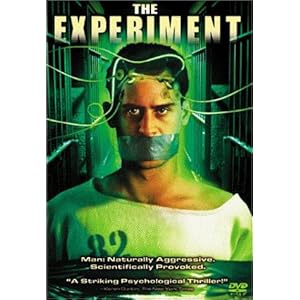Dr. Ian MacFarlane of Austin College agreed to help educate me (and you, I hope) on why using original TAT, Rorschach or questions from actual IQ tests can be a real ethical dilemma. He also offers some great suggestion on what we CAN do. Here's what he had to say:
Ethically Teaching Psychological Assessment
With so much information at our fingertips, we can easily get primary source material to enrich our classrooms. Showing students pictures of the actual shock machine from Milgram’s study or grainy footage of Watson with Little Albert helps bring concepts to life in a way lecturing cannot. There is one area of psychology, however, where we must practice restraint and actually avoid exposing students to original material: psychological assessment. There are numerous places online where you can find the entire set of Rorschach and Thematic Apperception Test (TAT) cards or sample items from intelligence tests. Our natural instinct is to use this source material in our classrooms, but the problem is psychologists still actively use these assessments in clinical practice. Exposing our students to these stimuli in non-clinical settings can change their responses to these tests if they encounter them later. Thus we need to convey how the assessments work without showing students the exact stimuli used. I offer you a simple method for doing so.
When I teach projective assessment, I usually cover the Rorschach and the TAT. For an in-class activity I take an image I find online to use as an example and have my students write a response as if they were actually being assessed. For Rorschach cards, search “inkblot images” in Google Image search or your favorite image search engine. Since I pass the images out to students for them to refer to later with their notes, I make sure to use an image licensed for reuse via Creative Commons (another search option in Google Image). Here’s an example from Flickr user BradleyLeese and another by DeviantArt user OmniSentinel. Be wary, as a lot of the actual cards are posted all over the web, but you can check the images you find against Wikipedia to be sure it’s not one of the originals. If you want to go a step further, you can have students actually make inkblots of their own. Margaret Peot has a page explaining how to do this as well as several examples. The instructions for the test are to explain what you see in the image.
For the TAT demo, I make sure to search only black-and-white images, and while the real TAT uses drawings exclusively, I don’t think that is essential to understanding the test so I also use photos if I like them. Here you can be creative with search terms, but I like to have multiple people interacting. Here’s an example of a photo I found when I searched for “conversation” (courtesy Flickr user Das Fotoimaginarium), and here’s an example of an engraving in the public domain from 1878 by Ridgway I found when I searched for “arguing.” Searching for images with these types of terms vastly reduces the likelihood that you’ll pull an actual stimulus from the TAT. The instructions for the test are to describe what led up to the moment you are witnessing, what are the characters thinking and feeling, and how does the situation resolve itself?
Explaining the objective assessments, like the MMPI, is typically more straightforward, but it is still important to not use actual items from the assessment. A demo I like to use when I introduce the empirical keying method of the MMPI starts by asking students to raise their hands if they enjoy going to concerts. I inform those who raised their hands they just received a point on the mania scale of the MMPI. While the other students snicker, I inform them they received a point on the hypochondriasis scale. I ask them to make sense of that, and eventually we get into the process used to develop the MMPI. I tell them afterwards that I made up the question, but it still illustrates the process nicely and gets them to think about psychometrics and the importance of norm groups.
Using these simple methods will allow you to confidently simulate the experience of taking a projective assessment while protecting the integrity of these tests so they can continue to be used in clinical settings.
Thanks to Dr. MacFarlane for educating me (Sorry, again!) and for the great suggestions. Ian MacFarlane, PhD (Follow him on Twitter at @I_MacFarlane) is an assistant professor of psychology at Austin College in Sherman, TX. He teaches general psychology, research methods, and several clinical psychology courses.
---- Posted by Amy Ramponi











